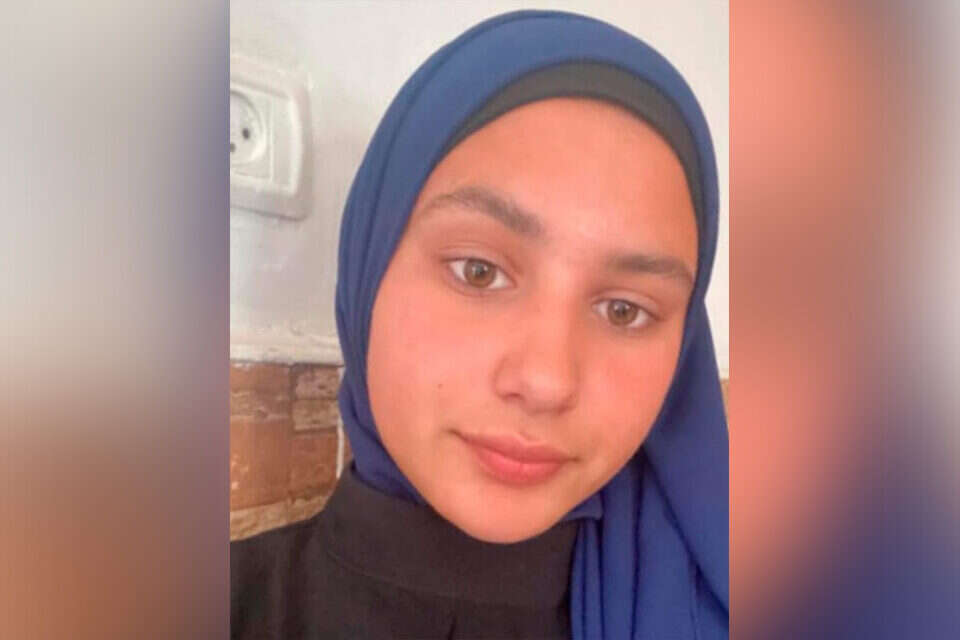"We are all in the same boat": a phrase that has been repeated quite a bit since October 7 regarding Jews and Bedouins from the south. The same boat was mortally damaged, many died, many others were "swept away" by the poisoned river into the Gaza Strip.
A rocket landed in the Bedouin diaspora in the Negev (archive)
But now that it's being rehabilitated, it feels like the Bedouin are being ignored again, as if we're in normal times. Every kidnapper matters, everyone. From the red-headed duo of the dear Bibas family to Oded Lifshitz, Yocheved's husband who was freed from the founders of Nir Oz. However, with every list that appears more and more adults and does not include 17-year-old Aisha al-Ziadne, the stories of shared fate and unity take on a bitter taste.
Aisha was abducted along with her father, Yusef Khamis al-Ziadneh (53), who worked in the cowshed of Kibbutz Dune, along with her two brothers, Hamza (22) and Bilal (21). The children worked perhaps in the most Zionist job there is, together with their father. Light years away from the stereotype and narrative of the "Wild South" or "Bedouin rioters." Samer Fouad al-Talalqah (22) from Hura who worked in Nir with Waqid Farhan al-Qadi (53), who lives near Rahat and worked as a guard at Kibbutz Magen, was also abducted.
The abductees from the Elizana family, photo: None
Ali al-Ziadne, Yusef's brother and Aisha's uncle, told Israel Hayom about the bitter news he received – Aisha was not on the list of those released: "They called us five times, every day to say that she hadn't registered since the beginning of the hudna. They called at three in the morning, 'Sorry, she's not on the list.'"
Ali talks about the support and hug he received from everyone who could, they came, called and mostly hugged, but still the pain does not let up, and for almost two months his relatives have been in captivity. And he has the feeling that from the moment of the releases – which are skipped, "so far 60 people have been released, we deserve one, who is under the age of 18 and meets the criteria – why don't we deserve it, the lists from Hamas tell us. But when the state wants to insist, they know very well how to stand on their feet. So I ask – insist and really get Aisha out. I have today's list, there isn't a single child in it. One child, none. Why take out a 36-year-old woman and not take out the girl, we trusted our country that we were in the same boat. In pain we are together, but in the small joy there is, we are not there."
In order to try to understand whether there has been any change in the attitude towards Bedouins in the Negev, we spoke with Talal Suleiman al-Karnawi, a social and political activist in Rahat, in a conversation with Israel Hayom, Al-Karnawi wants to change the perception that existed until now: "Aisha is kidnapped like everyone else, only the babies are more important, but we don't differentiate between the residents. Let them take out the babies and children. We don't want to differentiate because we are residents like everyone else. We are part of society, and every captive who returns is happy for him and his family. We don't hold demonstrations so Aisha will be released."
Talal Sliman al-Karnawi, photo: Courtesy of the subject
However, the disregard is still felt, "Unfortunately, there is a feeling that even in the media the Bedouin population is being neglected, it is ignoring it and it needs to pay attention. To the minority affected. We have to start recalculating our route, we have to understand that we are really in the same boat and no, we don't have to prove time and time again that we are part of the state."
Is there a unique hatred of Hamas towards the Bedouin population? Do they see them as traitors?
"The Arab citizens of the state grew up here on state institutions and are loyal to the state and do not undermine it as they have been portrayed for years. The Arabs in Gaza are an inseparable part of us, the citizens. But we are on the right side here, we saw with our own eyes what happened on October 7. Hamas comes to harm everyone, including Arabs, and whoever harms innocent people – we are against it. That they [Hamas] should see us however they want, we see it as ISIS. We do not obey his orders and we will not spit into the plate from which we eat.
Hamas hates everyone, everyone who lives here on the land, anyone who breathes the air across the border, whether it's dogs, cats, Jews, Arabs from the north, Jerusalem and the south. When they fired missiles, they knew he could hit everyone – a missile fell 10 meters from my house on October 7."
Wrong? We'll fix it! If you find a mistake in the article, please share with us

